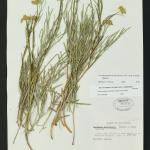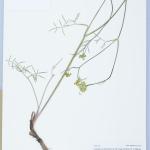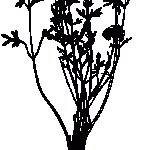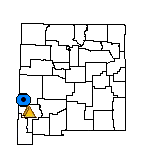Pseudocymopterus davidsonii (Davidson's Cliff Carrot)
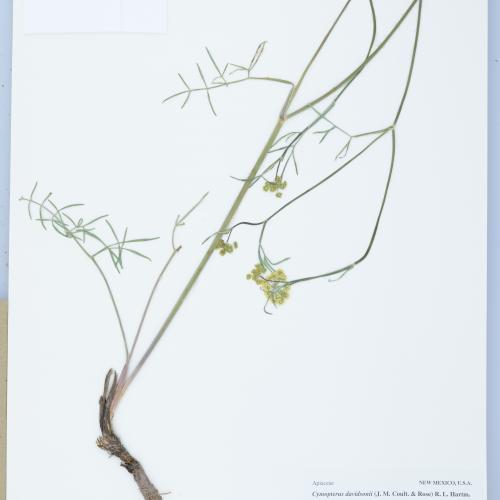
ALETES DAVIDSONII COULTER & ROSE; PSEUDOCYMOPTERUS DAVIDSONII (COULTER & ROSE) MATHIAS; PTERYXIA DAVIDSONII (COULTER & ROSE) MATHIAS & CONSTANCE
| USFWS | State of NM | USFS | BLM | Navajo Nation | State Rank | Global Rank | R-E-D Code | NMRPTC Status | Strategy Status |
|---|---|---|---|---|---|---|---|---|---|
| S1 | G1G2 | 2-1-2 | R | SS |
| Overall Conservation Status | Documented Threats | Actions Needed |
|---|---|---|
| WEAKLY CONSERVED | No information |
Surveys for distribution, abundance, and habitat requirements. Taxonomic validation. |
Perennial herb; stems 15-40 cm tall, branching above, faintly scabrous-hairy; leaves oblong to somewhat oblong-oval in outline, blade 1.5-14 cm long, 1-9 cm wide, 2- to 3-times pinnately parted, the ultimate divisions linear, acute-mucronate at tips, 1-30 mm long, 1-3 mm wide; petioles 1-7 cm long; stem leaves several; each stem terminated by a compound umbel with 5-9 primary branches (rays); rays 5-30 mm long, primary bracts either absent or broad and partially enclosing the primary branches; secondary bracts filamentous and subtending the terminal flower clusters; flowers yellow or purple; pedicels 1-5 mm long; fruits oblong, 3-4 mm long, 1-2 mm wide, smooth at maturity, with narrow lateral wings. Flowers in August.
The differences between this species and Cymopterus lemmonii are slight. In general, C. lemmonii has fewer stem leaves and somewhat larger fruits with broader wings.
New Mexico, Catron and Grant counties, Mogollon Mountains and Pinos Altos Range; adjacent eastern Arizona.
Cool, rocky places in piñon-juniper woodland and lower montane coniferous forest; 1,980-2,440 m (6,500-8,000 ft).
This plant is rarely collected and poorly understood. Hartman (2006) circumscribes Cymopterus to include Oreoxis, Pseudocymopterus, and Pteryxia.
The distribution, abundance, and habitat requirements for this species are poorly known and need additional study. The rocky, inaccessible habitats of known populations offer some protection from land use impacts.
Mathias, M.L. 1930. Studies in the Umbelliferae III: A monograph of Cymopterus including a critical study of related genera. Annals of the Missouri Botanical Garden 17:213-467.
*New Mexico Native Plants Protection Advisory Committee. 1984. A handbook of rare and endemic plants of New Mexico. University of New Mexico Press, Albuquerque.
Hartman, R.L. 2006. New combinations in the genus Cymopterus (Apiaceae) of the southwestern United States. Sida 22(2):955-957.
For distribution maps and more information, visit Natural Heritage New Mexico

